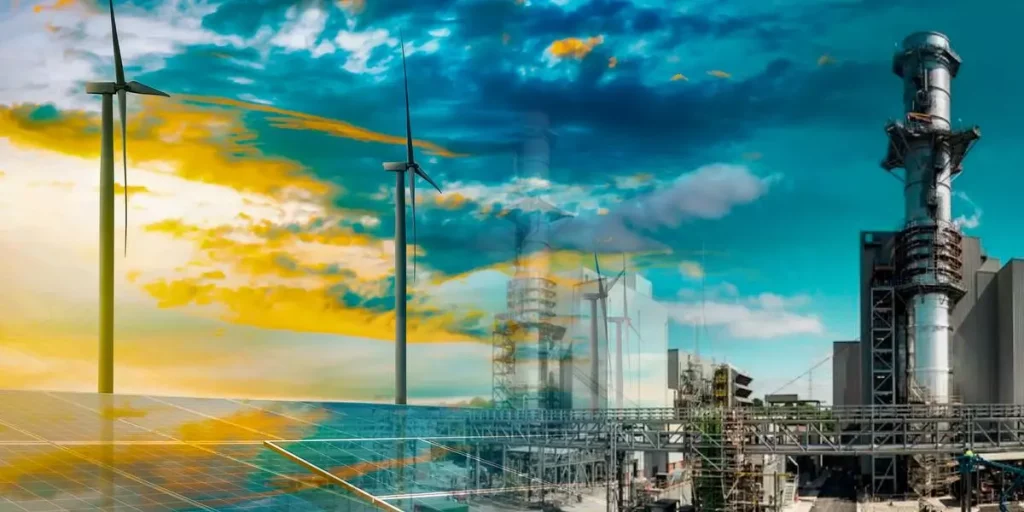The oil and gas industry has long been associated with traditional energy production methods that contribute significantly to global energy needs. However, with growing environmental concerns and the urgent need to reduce carbon emissions, the industry is now at a pivotal moment. Sustainability is no longer just a trend; it is a necessity. As the world transitions toward greener alternatives, the future of sustainable energy within the oil and gas sector has become a key focus.
The Role of Oil and Gas in a Sustainable Future
While many might see oil and gas as opposing forces to sustainability, the truth is more nuanced. Fossil fuels continue to be integral to the global economy and will remain so for the foreseeable future. However, the industry is evolving to incorporate more sustainable practices, aiming for a balance between meeting current energy demands and paving the way for a low-carbon future.
Here’s how the oil and gas industry is contributing to the sustainable energy landscape:
1. Carbon Capture, Utilization, and Storage (CCUS)
One of the most significant advances in the industry is the adoption of Carbon Capture, Utilization, and Storage (CCUS) technologies. These systems capture carbon dioxide emissions from production and industrial processes and either store them underground or use them in other applications, like enhancing oil recovery. CCUS technologies are vital in helping the oil and gas sector achieve carbon neutrality while still maintaining energy production.
2. Hydrogen as a Clean Energy Source
Hydrogen is gaining attention as a promising clean energy solution. Many oil and gas companies are investing heavily in developing blue hydrogen, which is produced from natural gas with the carbon emissions being captured. This technology allows the industry to leverage its existing infrastructure while providing a cleaner alternative to traditional fossil fuels. The future may see hydrogen playing a key role in powering industries and even vehicles, helping to reduce global emissions.
3. Integration of Renewable Energy Sources
The oil and gas industry is increasingly integrating renewable energy sources, such as wind and solar, into their operations. Offshore oil platforms are beginning to adopt wind turbines to power their operations, reducing their reliance on diesel or natural gas. Additionally, companies are investing in renewable energy projects to diversify their energy portfolios and reduce their overall carbon footprint.
4. Digital Transformation and Efficiency
Technological innovations, including the rise of big data, IoT, and AI, are helping the industry enhance operational efficiency, which is a crucial part of sustainability. By optimizing processes, minimizing waste, and reducing energy consumption, companies can lower their environmental impact. For example, predictive maintenance can prevent equipment failures, leading to fewer leaks and accidents, which have long-term environmental effects.
5. Circular Economy Initiatives
Oil and gas companies are also exploring circular economy models, where waste materials are reused or recycled within the production cycle. For example, waste heat from industrial processes can be harnessed and repurposed to generate electricity, significantly lowering energy consumption.
6. Commitment to Reducing Methane Emissions
Methane is a potent greenhouse gas, and its reduction is essential for mitigating climate change. The oil and gas industry is focusing on reducing methane emissions through better leak detection and repair technologies. Innovations such as drones, infrared cameras, and sensors allow for real-time monitoring, making it easier to address leaks as they happen.
7. Partnerships for Sustainability
Sustainability requires collaboration across industries, governments, and environmental groups. Oil and gas companies are increasingly forming partnerships with renewable energy firms, environmental organizations, and technology providers to accelerate the transition toward more sustainable energy solutions. These collaborations foster innovation, share knowledge, and create more scalable solutions to the energy challenges of today and tomorrow.
The Road Ahead
The transition toward sustainable energy in the oil and gas industry is not without challenges. Balancing the global demand for energy with the need for environmental stewardship requires careful planning, investment, and innovation. However, with a clear focus on reducing carbon emissions, improving energy efficiency, and integrating renewable energy, the industry is poised to play a critical role in shaping a sustainable energy future.
For companies like Invictus, which are dedicated to innovation and sustainability, the future is filled with opportunities to lead the charge in creating a more responsible and resilient energy landscape. Through the adoption of advanced technologies and sustainable practices, the oil and gas industry can contribute meaningfully to a future where energy production and environmental responsibility go hand in hand.
Conclusion
Sustainable energy is no longer an option but a mandate for the oil and gas industry. By investing in cleaner technologies, adopting innovative solutions like CCUS, hydrogen, and renewables, and fostering partnerships, the industry can not only meet global energy demands but also contribute to a cleaner, more sustainable future.
The path forward requires commitment and action, but with the right steps, the oil and gas industry can be a key player in the world’s sustainable energy revolution.



